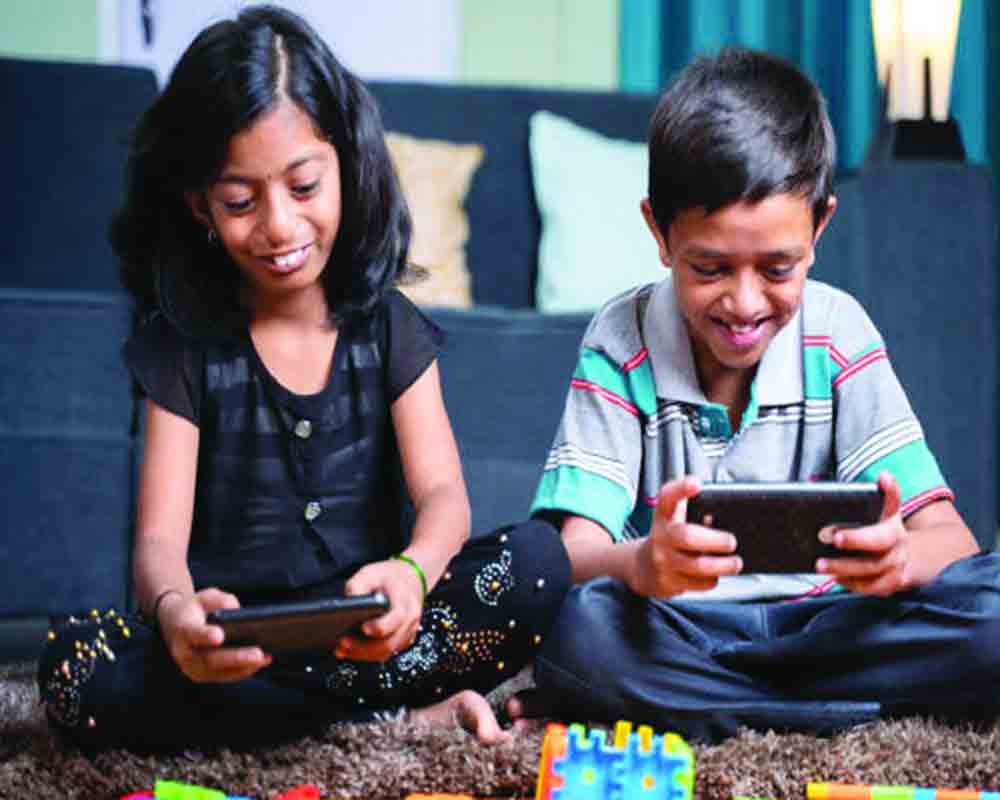While the digital age offers learning and entertainment opportunities, it's vital to safeguard our children from over indulging in it
In the serene town of Poonch, ensconced amid the majestic hills of Jammu Province, modern technology has seamlessly woven itself into daily life. The ubiquitous smartphone is now a vital tool for communication, entertainment, and knowledge, influencing people of all ages. However, the unforeseen repercussions of this digital revolution are particularly pronounced among our youngest generation.
As mobile phones become our steadfast companions, children increasingly fall prey to the irresistible allure of screens. The transformation is striking, and the consequences are alarming, prompting both parents and psychologists to scrutinize its impact on the mental and physical health of young minds.
The Digital Dawn
The story often begins with innocent intentions. Parents introduce smartphones to their children, aiming to offer them a source of entertainment and education. However, what starts as a well-intentioned decision soon becomes an all-consuming pastime for children. Over time, their days become filled with endless scrolling, virtual games, and the creation of video content, a trend that has taken our society by storm.
Dr. Alvaro Bilbao, a renowned psychiatrist, delves into the myriad of issues arising from this screen addiction in his book, "Understanding Your Child's Brain." According to his research, children aged six and under who spend excessive hours on their smartphones suffer a decline in memory retention. Such children are also at a higher risk of developing irritability, obesity, depression, anxiety, and attention deficit disorders. Their behaviour is noticeably more volatile, reflecting the emotional turmoil within.
Digital Dilemma in Every Household
Smartphone addiction transcends urban and rural boundaries, manifesting itself in households across India. While parents in urban areas introduce their children to the digital world as an early initiation into the modern age, those in remote villages often view it as a means to keep their children occupied while they engage in laborious work or house chores. Unfortunately, what appears as a convenience often translates into long-term problems for the children's physical and mental health.
Even youngsters who are barely out of infancy find themselves drawn into the world of technology. Social media, video games, and online content have become a universal fascination for kids who should be more focused on exploring the real world around them.
The Saving Grace
However, amid this digital dilemma, there are voices of reason and hope. Kautilya Pandit, affectionately known as the "Google Boy," has become an inspiration. He chooses not to engage with mobile phones, recognizing their detrimental effects. While he acknowledges the allure of these devices, he emphasizes the importance of introducing children to outdoor activities, serving as a powerful antidote to their smartphone addiction.
Kautilya's message is clear: parents must exercise firmness and restraint. Denying children their smartphones, even during meal times, is the first step to breaking this habit. A few days of adherence to this approach can dramatically change children's habits, proving that this battle can be won.
Dr. Bilbao's call to action reinforces the necessity of immediate measures to curb smartphone addiction. Doctors at Delhi AIIMS recommend the following guidelines for parents: Keep children away from mobile phones and TV screens until the age of three; Do not let children use the internet before the age of six; Do not allow children under nine years to play video games; And do not let children use social media before the age of twelve.
In today's digital age, even three-year-olds are adept with mobile phones, leading to health issues at a tender age. It's parents' responsibility to protect their children from this addiction and ensure a future untainted by screens. While the digital age offers learning and entertainment opportunities, it's vital to maintain a balance and safeguard our children's well-being. As our young ones navigate this digital landscape, let's guide them toward healthier choices and preserve the essence of childhood—exploration, play, and the wonders of the real world.
(The author is a grassroots writer from the border village of Magnad in Poonch district, J&K; views are personal. Charkha Features)
























